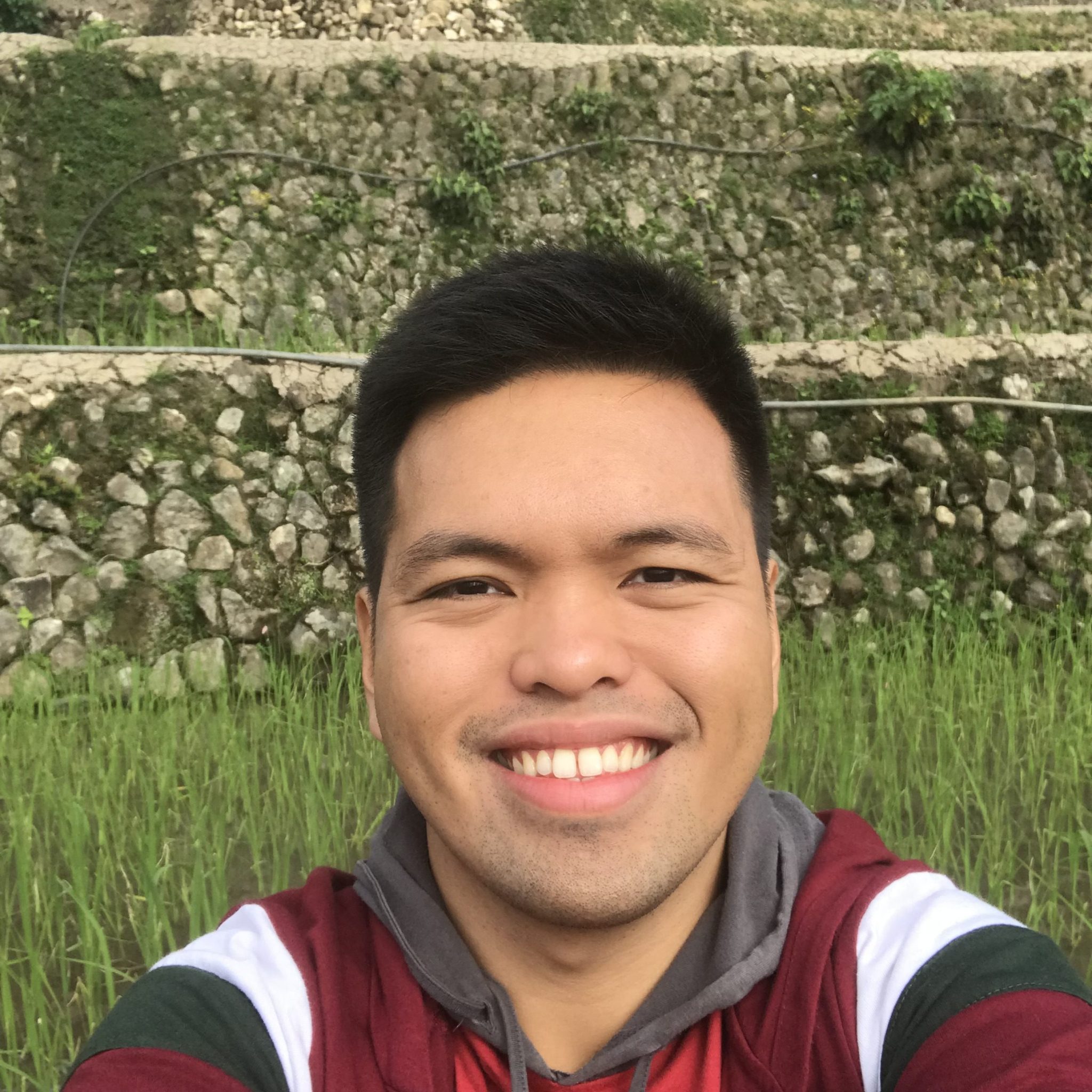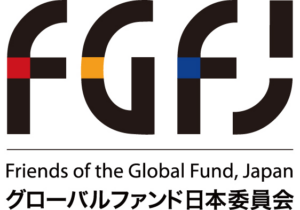 Jeffry Acaba (second from right, sitting down) attending a Joint United Nations Programme on HIV/AIDS meeting, 2017.
Jeffry Acaba (second from right, sitting down) attending a Joint United Nations Programme on HIV/AIDS meeting, 2017.
The latest installment of the “Infectious Diseases Without Borders–Our Story” interview series features Jeffry Acaba, who began working on HIV prevention initiatives when he was a university student in the Philippines. When he himself found out that he was living with HIV, he found it difficult to come to terms with his status. Through his personal struggles, from living with HIV to overcoming tuberculosis (TB), Mr. Acaba gives valuable insight on how we can apply the experiences and lessons learned from combatting HIV, TB, and social injustice to fight the ongoing COVID-19 pandemic.
The “Infectious Diseases Without Borders–Our Story” series was formed in collaboration between the Friends of the Global Fund, Japan (FGFJ) and Asahi GLOBE+. To read this interview in Japanese, please visit the Asahi GLOBE+ website.
When did you start getting involved in HIV/AIDS-related issues?
As a university student, I pursued anthropology with a focus area in HIV, and eventually my studies expanded to include health-seeking behaviors and risk behaviors of people in relation to health. Then in 2006, as I was studying in the Philippines, I started working as a peer educator among sex worker communities in Quezon City.
In 2011, I contracted HIV while I was in a romantic relationship. I already had an STI that I had gotten from my ex-boyfriend, but because I loved my ex so much, it was very easy to just let things like this slide. Even if you know the precautions and the methods to protect yourself when it comes to HIV and sex, if you meet someone who you have a strong romantic or emotional attachment with, it’s very easy to throw everything that you learned out of the window.
I was already doing some HIV work back then, but at that time, while I was encouraged to start the medication, I had an option not to start it right away. Because I did experience some stigma related to HIV, especially within the HIV advocacy field, I chose to wait on taking medication. There’s this perception that if you’ve been involved in HIV-related work for that long being HIV-negative, and then you suddenly seroconverted to becoming “HIV-positive,” it means that you are not taking the same precautions you talk to others about.
But eventually, I realized that we’re only people and there are other factors that really impact your decision-making in different moments in time. So three years later in 2014, that’s when I decided to just move on and started taking my medicine.
When were you diagnosed with tuberculosis (TB)?
I was diagnosed with TB in 2014 when I had to do a routine screening to start my antiretroviral (ARV) treatment. I started noticing symptoms like waking up in the morning sweaty and my bed being as wet as a pail of water. People also started noticing how much thinner I had become. At that point, I already knew that these were symptoms of TB.
Unfortunately, I don’t know where I contracted the disease. What I do know is that back in 2006, my grandmother died due to incredibly bad coughs and phlegm, and one of the potential causes that the doctor gave was TB. However, she was never officially diagnosed, so I may have had it as a latent condition that only became active in 2014.
What was it like to be on both TB and ARV treatments?
I started my TB treatment in April 2014 and it lasted for six months. My doctor from the HIV clinic told me that I had to finish the initial two months of TB treatment before I could start my ARV.
Compared to the rest of the six months of TB treatment, the first two months were the worst because of the side effects. You have to take one of the medications in the morning before you eat breakfast which comes with severe headaches as a side effect. Another one made your urine turn orange. And then you experience diarrhea or stomachaches for the first two months. On top of all of this, I had to go to work, so it was a difficult time.
It was really helpful for me to have already been involved in HIV work when I started my ARVs after the two months on TB treatments, as I quickly learned how to handle the side effects such as dizziness and headaches. So the education that I got through my experiences in working with HIV has been really important for me.
Tell us about your work with the Global Fund to Fight AIDS, Tuberculosis and Malaria (The Global Fund) and now with APCASO.
I first worked for the Global Fund in 2008–2009 as a part of the Global Fund Principal Recipients in the Philippines. I started volunteering as a peer educator, providing HIV information in the field. I then became the Monitoring and Evaluation Coordinator for the Global Fund HIV grants in the Philippines.
My main responsibility included doing surveillance through monitoring meetings and visits to different provinces. I was also the one who took the lead in the Integrated HIV Behavioral and Serologic Surveillance (IHBSS) from 2009 to 2011.
In the mornings I would do advocacy work, talking to the police about the rights of sex workers, and introducing policy lessons from other countries and thinking about how we can adapt them in the Philippines so that we can protect sex workers from abuse and violence. In the evenings, under a different hat, I would do epidemiology surveys with a different team as well as meet and interview MSM (men who have sex with men), going to different hotspots and venues.
I am now the senior program officer at APCASO, a regional network of community-based organizations and civil society organization working on HIV, and on health and social justice, that is based in Thailand. One of the reasons why I accepted this work in Thailand was to expand the scope of my work and my opportunities from where I started in the Philippines. Most of my projects are linked with TB at the moment, but more broadly, it is about human rights and policy advocacy related to social mobilization, writing statements or policy papers.
I am also still involved with HIV, being a Board member of the Global Network of People Living with HIV (GNP+) and a member of the HIV Justice Network. For someone like me who is living with HIV, it’s not only easy to relate to other people who we are working with but also to build that kind of understanding of the interconnection between the two diseases. For example, with our community partners who work on HIV and TB, they are more receptive if the person who is talking to them has also experienced the same things or has been involved in the same way.

Jeffry Acaba (second from left, in front) at a meeting on HIV and tuberculosis in the Asia-Pacific region, 2018.
From what you know about HIV and TB, what lessons do you believe can be applied to tackle COVID-19?
For me right now, it’s really to continue the human rights work that I’ve started with HIV and TB, to leave no one behind, and also to not have people be criminalized. I saw how public health measures have been used to justify the ostracization of people and heighten the criminalization of specific groups of people.
This also applies when we talk about the vaccine initiative. In terms of prioritization (not only based on countries, but also within countries) who gets to have access to the vaccine first and who is more vulnerable to COVID-19 should correlate. So, I think the principles and the work on human rights has to continue.
At the same time, community engagement is just as important. It’s really about establishing those who have experienced and survived COVID-19 and utilizing their experiences to strengthen engagement in the response. In many countries, especially here in our region, the response to COVID-19 has been mostly militaristic. Restrictive lockdowns, curfews, penalties if you’re not wearing a mask. But it hasn’t been approached wherein people can actually learn from within themselves on how to prevent COVID-19, or what to do when you find out that a family member has COVID-19. That kind of risk communication and health education has not been strengthened so much. And that is something that we have learned with HIV and TB. We have to implement those learnings to our COVID-19 response.
At the advocacy level, I’m learning that, regardless of what kind of pandemic we are tackling (whether it is HIV, TB, or COVID-19), we cannot just make a blanket approach to end a disease. It has to be differentiated and tailored to specific populations and I think we haven’t done that yet with COVID-19. The impacts of COVID-19 are felt in several parts of our lives, from our job status, economic status, health status and comorbidities, violence, including gender-based violence and intimate partner violence, and also our mental health. The approach has always been massively blanketed, as if restrictions alone can solve everything. Civil society has a role to play in making sure that we really cater to those who have historically been left behind in previous pandemics. No one is safe until everyone is safe. That is our primary role as civil society. To make sure that those who are left behind will always be involved and be part of the response.
Even the ongoing debates on which one to prioritize, health or economy–personally, for me, this is really absurd because we live in an era of SDGs, when everything has to be interconnected. And we all know that if we don’t allow people to work, they won’t have money to put food on their tables, and their health will eventually deteriorate. There has to be a way to approach this in a more sensible way and not force us to choose one or the other.

Jeffry Acaba speaking at a Friends of the Global Fund, Europe conference in Germany, 2019.
Any message to the Japanese audience?
With regards to the original theme of the Tokyo 2020 Olympics (“United by Emotion”) I’d like to let people know that they’re not alone and that they’re never alone. All of us have these same feelings that make us human. Reach out if you need someone to talk to. It is our obligation as well to just reach out to others, check up on them, and make sure that they’re okay.
Whatever happens in this year’s Olympics, the spirit of the Olympic games has always been there, which is global cooperation and global collaboration. We have to continue hoping that this pandemic will end very soon, but that will only happen when we all work together.
Interviewer’s Note:
While researching HIV/AIDS and working to prevent and raise awareness of the infection among his peers, Jeff became infected himself when he fell in love. His account of the difficulties of sexually transmitted diseases left a strong impression; no matter how much we understand in our minds, logic alone means nothing in the face of love, a weakness of human beings. However, at the same time, we also possess the strength to overcome such weaknesses as he did in finally deciding to undergo treatment after three years of personal struggle.
Representing the affected community, Jeff was selected to run in the Tokyo 2020 Olympic Torch Relay as a member of the “The Global Fund–From Okinawa” team. His dream to carry the torch on behalf of the affected community was not realized due to travel restrictions posed by COVID-19. While sending a warm message of support from across the sea, he confesses to being happy that those very travel restrictions enabled him to spend more time with his partner, whom he wed the year before last in New Zealand, where same-sex marriage is legal.
– Sachiko Aoki, Japan Center for International Exchange (JCIE) / Friends of the Global Fund, Japan (FGFJ)
 About Jeffry Acaba
About Jeffry Acaba
Jeffry Acaba is currently the senior program officer of APCASO and a coordinator for the Activists Coalition on TB–Asia Pacific (ACT! AP). He is also a member of the WHO Civil Society Task Force on TB and holds several governance and advisory roles in a number of global and regional civil society organizations and working groups, providing strategic direction and oversight in programming and administration.
Jeff is a Filipino activist and since 2006 has been advocating for the rights of people living with HIV and TB, key populations, and the most marginalized. Living with HIV and being a TB survivor, Jeff has extensive experience in health policy advocacy, community development, and research. He holds a bachelor’s degree in Behavioral Sciences from the University of the Philippines and pursued his post-graduate studies on Transnational History of Public Health in Southeast Asia at the University of Cambridge.
To read more interviews like this one, please visit the main “Infectious Diseases Without Borders—Our Story” series page.
For interview content in Japanese, please visit the Asahi Shimbun GLOBE+ website.

